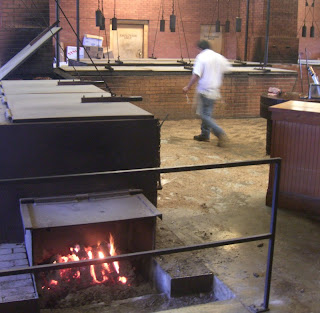 The presidency of LBJ coincides roughly with my teenage years. Looking back, his presence looms large over my passage into adulthood. Most of us who are old enough to remember Lyndon Johnson will probably recall the vivid last months of his presidency. The American public had grown tired and disillusioned with the Vietnam War, and maverick Senator Eugene McCarthy had won surprising early primary victories against a sitting president. The final blow was the entry of Robert Kennedy into the primaries - even the brother of his ticket mate had turned against him.
The presidency of LBJ coincides roughly with my teenage years. Looking back, his presence looms large over my passage into adulthood. Most of us who are old enough to remember Lyndon Johnson will probably recall the vivid last months of his presidency. The American public had grown tired and disillusioned with the Vietnam War, and maverick Senator Eugene McCarthy had won surprising early primary victories against a sitting president. The final blow was the entry of Robert Kennedy into the primaries - even the brother of his ticket mate had turned against him. A weary and defeated LBJ made his fateful decision: "I shall not seek, and I will not accept, the nomination of my party for another term as your President."
--------------
LBJ has been part of my family history for as long as I can remember. My maternal Grandmother voted for the young Congressman in the depths of the Great Depression. It didn't take long for LBJ to gain the fierce loyalty of his poor rural constituency.
It was the common wisdom of the day that a Republican could not be elected dogcatcher in Texas. The loyalty to Johnson (and the Democratic Party) would last for decades. Not until Nixon's "Southern Strategy," would the tide begin to turn. Along with the new prosperity, a wave of Republicanism swept the Lone Star State. It seemed Texans had forgotten their humble past.
Certainly LBJ never forgot his past. He was born in 1908 near Stonewall, in a small farmhouse on the Pedernales River. Despite the poverty of his childhood, this land never lost its hold on him. As family fortunes improved, Congressman (and later Senator) Johnson built a sprawling
ranch home that became a hub of political activity.

The LBJ Ranch is now a part of the National Park System, and is open to the public. Rangers lead guided tours of the home (no interior photographs are permitted, unfortunately). The residence, although large, is quite unpretentious, with plain furnishings. It's very little different from other ranch dwellings of the era.
The only hint that this was not an ordinary residence are the ubiquitous telephones in every room, and the Secret Service command center in an adjacent trailer.
In the old airplane hanger are some of LBJ's favorite vehicles. I love the Ford Phaeton from the thirties and the classic Continentals. One of Johnson's infamous pranks was to take foreign dignitaries on a tour of his ranch, head straight for the water, and scream "the brakes are out!" Of course, he neglected to mention the convertible they were riding in was amphibious.
----------
Despite the tragic end of his presidency, Johnson will be remembered as central figure in the reconstruction of the nation, first as an ally of FDR, and later shepherding the civil rights and voting rights measures through Congress.
Johnson was the greatest master of getting things done in Washington. His powers of persuasion were honed to perfection in a technique known as "The Treatment."
The Treatment could last ten minutes or four hours. It came, enveloping its target, at the LBJ Ranch swimming pool, in one of LBJ's offices, in the Senate cloakroom, on the floor of the Senate itself — wherever Johnson might find a fellow Senator within his reach.
Its tone could be supplication, accusation, cajolery, exuberance, scorn, tears, complaint and the hint of threat. It was all of these together. It ran the gamut of human emotions. Its velocity was breathtaking, and it was all in one direction. Interjections from the target were rare. Johnson anticipated them before they could be spoken. He moved in close, his face a scant millimeter from his target, his eyes widening and narrowing, his eyebrows rising and falling. From his pockets poured clippings, memos, statistics. Mimicry, humor, and the genius of analogy made The Treatment an almost hypnotic experience and rendered the target stunned and helpless."
Image via Wikipedia



















